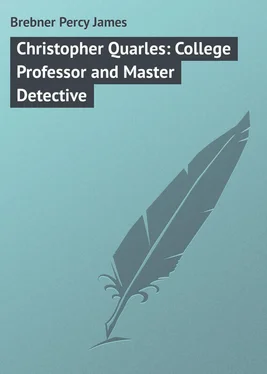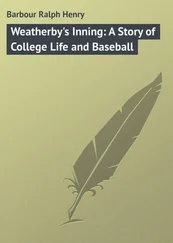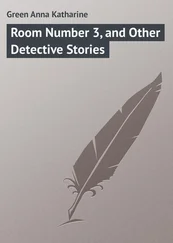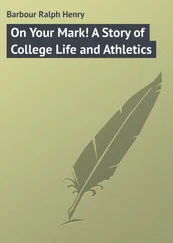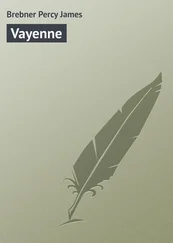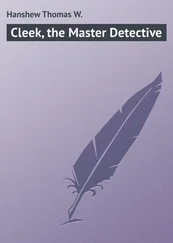Percy Brebner - Christopher Quarles - College Professor and Master Detective
Здесь есть возможность читать онлайн «Percy Brebner - Christopher Quarles - College Professor and Master Detective» — ознакомительный отрывок электронной книги совершенно бесплатно, а после прочтения отрывка купить полную версию. В некоторых случаях можно слушать аудио, скачать через торрент в формате fb2 и присутствует краткое содержание. Жанр: Классический детектив, foreign_detective, foreign_prose, на английском языке. Описание произведения, (предисловие) а так же отзывы посетителей доступны на портале библиотеки ЛибКат.
- Название:Christopher Quarles: College Professor and Master Detective
- Автор:
- Жанр:
- Год:неизвестен
- ISBN:нет данных
- Рейтинг книги:4 / 5. Голосов: 1
-
Избранное:Добавить в избранное
- Отзывы:
-
Ваша оценка:
- 80
- 1
- 2
- 3
- 4
- 5
Christopher Quarles: College Professor and Master Detective: краткое содержание, описание и аннотация
Предлагаем к чтению аннотацию, описание, краткое содержание или предисловие (зависит от того, что написал сам автор книги «Christopher Quarles: College Professor and Master Detective»). Если вы не нашли необходимую информацию о книге — напишите в комментариях, мы постараемся отыскать её.
Christopher Quarles: College Professor and Master Detective — читать онлайн ознакомительный отрывок
Ниже представлен текст книги, разбитый по страницам. Система сохранения места последней прочитанной страницы, позволяет с удобством читать онлайн бесплатно книгу «Christopher Quarles: College Professor and Master Detective», без необходимости каждый раз заново искать на чём Вы остановились. Поставьте закладку, и сможете в любой момент перейти на страницу, на которой закончили чтение.
Интервал:
Закладка:
Try as I would, I could get no explanation out of him either that night or next day. He was always as secret as the grave until he had proved his theory, and then he seemed anxious to forget the whole affair, and shrank from publicity. That is how it came about that I obtained credit which I did not deserve.
"We go there again this evening," he said after lunch next day; "so a restful afternoon will suit us."
It was getting dark when we set out, and again Quarles's unerring sense of locality astonished me. He led the way without hesitation. This time he took more precaution not to make a sound when climbing over the shed into the narrow path.
"I think we are first, but great care is necessary," he whispered.
We crept forward and concealed ourselves among the scrub vegetation which grew in that part of the pit which was open to the sky. It was dark, the long shed barely discernible, but the professor was particular about our position.
"We may have to creep a little nearer presently," he whispered. "From here we can do so. Silence, Wigan, and don't be astonished at anything."
The waiting seemed long. Moonlight was presently above us, throwing the cave part of the pit into greater shadow than ever.
I cannot attempt to say how long we had waited in utter silence when Quarles touched my arm. Someone was coming, and with no particular stealth. Whoever it was seemed quite satisfied that the night was empty of danger. I heard footsteps on the raised floor of the shed – a man's step, and only one man's. I heard him moving about for some time. I think he came down the ladder once and went up again. Then there was a light and sudden tiny flames. In the dark he had evidently got fuel, and had started a fire on the stone slab.
As the flames brightened I watched his restless figure. He was not a young man. I caught a glimpse of white hair, but he took no position in which I could see his face clearly. He was short, thick-set, and quick in his movements.
From somewhere at the back of the shed he pushed forward a block of wood, and, standing on this, he fixed something to the short chain I had noted yesterday. When he got down again I saw that a bundle was suspended over the fire, not a pot, and it was too high for the flames or much of the heat to reach it, only the smoke curled about it.
Then the man moved the wooden block to the side of the fire and sat down facing us, the flickering flames throwing a red glow over him.
"Wigan, do you see?" whispered Quarles.
"Not clearly."
"We'll go nearer. Carefully."
From our new point of view I looked again. The man's face was familiar, but just then I could not remember who he was. It was the bundle hanging over the fire which fascinated me.
Tied together, and secured in a network of string, were five or six human heads, blackened, shriveled faces, which seemed to grin horribly as they swung deeply from side to side, lit up by the flicker of the flames.
"Do you see, Wigan?" Quarles asked again.
"Yes."
"And the man?"
"Who is he?"
"On the bench yesterday. Sir Henry Buckingham. Don't you remember?"
For an hour – two, three, I don't know how long – that horrible bundle swung over the fire, and the man sat on his block of wood, staring straight before him. I had a great desire to rush from my hiding-place and seize him, and I waited, expecting some further revelation, listening for other footsteps. None came. The fire flickered lower and went out. The moon had set, and the cold of the early morning got into my bones.
In the darkness before the dawn the man moved about the shed again, and presently I heard him go.
"Patience!" whispered Quarles, as I started up to go after him. "He will not run away."
His calmness almost exasperated me, but he would answer no questions until we had returned to our hotel and had breakfast.
"My dear Wigan," he said, when at last he condescended to talk, "it was Zena who first set me on the right road, when she remarked that a man who had walked in a ditch carrying a bag would arrest attention. Two points were suggested – first, that the man might not have far to go to reach a place of safety; secondly, that he had come prepared to take a head away with him. A mere speculation, you may say, but it set me putting questions to myself. Why should a head be required? What kind of man would be likely to want a head? A theory took shape in my brain, and I hunted up the history of the well-to-do people who lived in the neighborhood of Withan. My theory required a man who had traveled, who was elderly, who could be connected with the case in France two years ago. I found such a man in Sir Henry Buckingham. I told you I was not certain of my theory. I was doubtful about it after I had watched Sir Henry for a whole morning on the bench. I sought for some peculiarity in his manner, and found none. Yet his history coincided with my theory. You know nothing about him, I suppose?"
"Nothing."
"Rather an interesting career, but with an hereditary taint in it," Quarles went on. "His mother was eccentric. Her husband was rich enough to have her looked after at home; had she been a poorer person she would have died in a madhouse. Religious mania hers was, and her son has inherited it in a curious fashion. In the year intervening between the Normandy crime and this one Sir Henry was in Rome, where he was very ill, delirious, and not expected to live, so there was no similar crime that year. But he was in Normandy at the time of the murder there, motoring, and usually alone."
"How have you learnt all this?"
"He is important enough to have some of his doings chronicled, and he wrote some interesting articles for a country gentlemen's newspaper about his Normandy tour – nature studies, and such like. Another point, both these murders happened at the time of the full moon. I am not absolutely sure, but I think you will find that for the last half-dozen years Sir Henry has not been in England in January."
"You think – "
"I think there would have been other heads missing if he had been," Quarles answered. "He was sane enough to be somewhere where he was not known when this time of the year came round. At the full moon he is always queer – witness last night; but he is only dangerous in January – dangerous, I mean, without provocation. To preserve his secret, I have little doubt he would go to any length; that is why I warned you to be ready to shoot when we went upon our journey of discovery. Now this year he was in England; illness had kept him to his house yonder, but he was well enough to get out at the fatal time, and the insane desire proved irresistible. He was cunning too. He must know everybody in the neighborhood, yet the man he killed was unknown. We shall find presently, I have no doubt, that the victim was some wanderer returning unexpectedly to friends in Withan. That would account for the foreign cut of his clothes. Sir Henry, waiting in the wood, perhaps for hours, may have allowed others to pass before this man came. He realized that he was a stranger, and attacked him."
"But the head?"
"Was among those hanging over the fire. Sir Henry was for many years in Borneo, Wigan, and for a large part of the time was up-country helping to put down the head-hunting which still existed there, and still does exist, according to all accounts, when the natives think they can escape detection. The horrible custom proved too much for his diseased brain, and fascinated him. You see how my theory grew. Then I looked for the actual proof, which we found last night. The long shed in that pit is built exactly as the Dyaks of Borneo build theirs – a whole village living on communal terms under one roof. The stone slab for the fire is the same, and over it the Dyaks hang the treasured heads, just as we saw them last night. Now you had better go and see the police, Wigan. Don't drag me into it. I am going back to London by the midday train."
Читать дальшеИнтервал:
Закладка:
Похожие книги на «Christopher Quarles: College Professor and Master Detective»
Представляем Вашему вниманию похожие книги на «Christopher Quarles: College Professor and Master Detective» списком для выбора. Мы отобрали схожую по названию и смыслу литературу в надежде предоставить читателям больше вариантов отыскать новые, интересные, ещё непрочитанные произведения.
Обсуждение, отзывы о книге «Christopher Quarles: College Professor and Master Detective» и просто собственные мнения читателей. Оставьте ваши комментарии, напишите, что Вы думаете о произведении, его смысле или главных героях. Укажите что конкретно понравилось, а что нет, и почему Вы так считаете.
